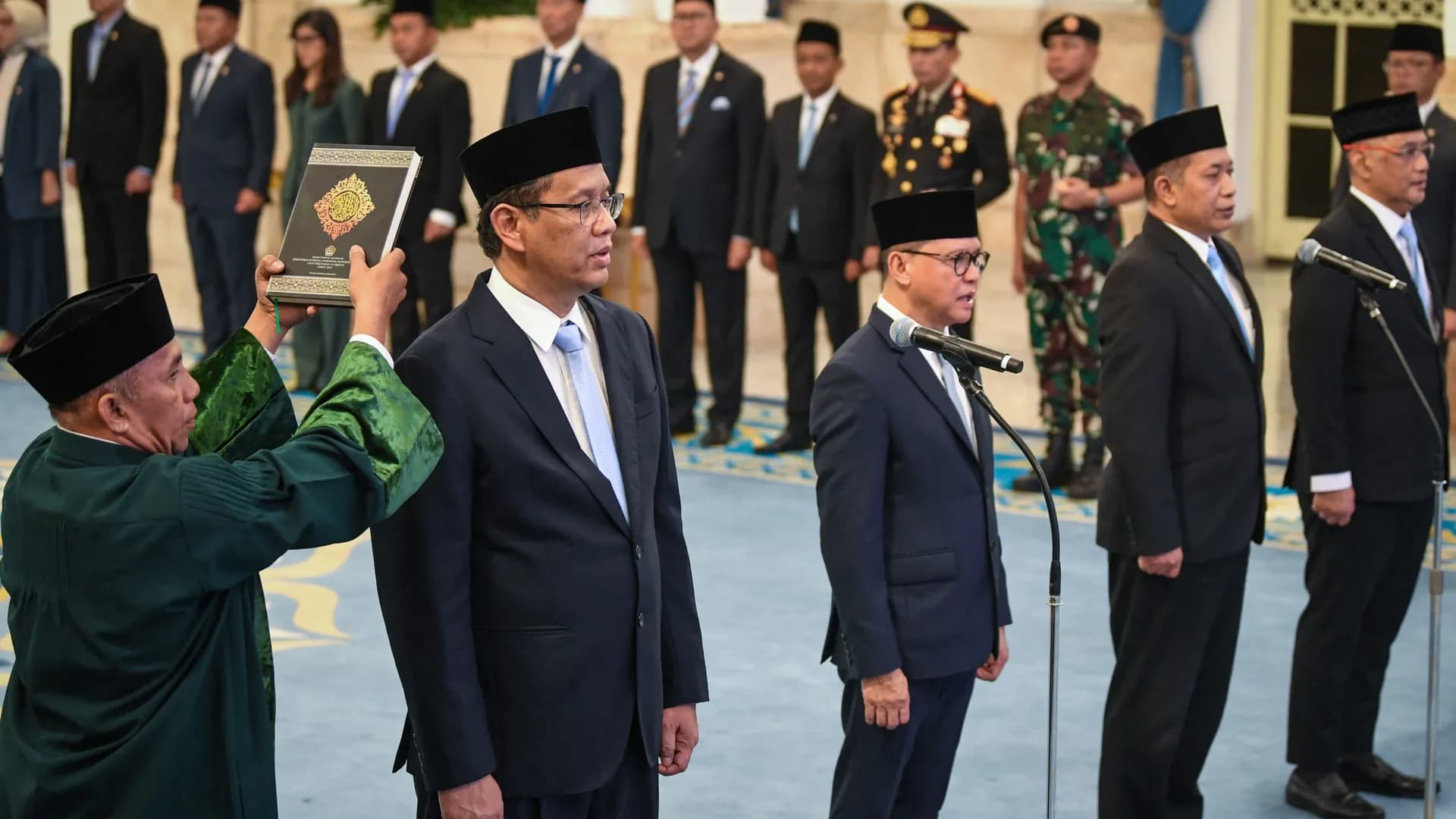We're loading the full news article for you. This includes the article content, images, author information, and related articles.
President Prabowo Subianto's first year in office has been marked by widespread public discontent over rising living costs and a controversial free school meals program plagued by food poisoning outbreaks, raising questions about governance and economic stability in Southeast Asia's largest economy.

Indonesia is currently experiencing a wave of anti-government protests, largely fueled by mounting cost-of-living pressures and public outrage over lavish benefits for lawmakers. Demonstrations intensified on Thursday, August 29, 2025, after a 21-year-old motorcycle taxi driver, Affan Kurniawan, was killed when he was struck by a police vehicle during a protest in Jakarta. This incident escalated the protests, which had initially begun due to citizens discovering that members of parliament were receiving a monthly housing allowance of 50 million rupiah (approximately USD 3,000), nearly 20 times the average Indonesian's monthly income.
These demonstrations, which have spread to major cities including Surabaya, Makassar, Yogyakarta, Medan, Bandung, and Papua, highlight deep-seated frustrations over corruption and inequality. Protesters are demanding answers regarding soaring living costs, allegations of corruption, and concerns about police brutality.
A flagship initiative of President Prabowo's administration, a free school meals program designed to combat child malnutrition and stimulate the economy, has faced significant challenges. Since its rollout in January 2025, the program has been marred by numerous food poisoning incidents, with images emerging of weak and dehydrated children, some as young as seven, on intravenous drips.
More than 9,000 children have fallen ill since the program began, with over 1,000 cases reported in West Java alone in a single week in September 2025. The National Nutrition Agency recorded approximately 1,376 cases of school-linked food poisoning between January and June 2025, a number that surged to 4,711 by September. Critics are questioning the program's effectiveness and its strain on public resources, especially given its estimated annual cost of $28 billion (£20.8 billion) if expanded to 83 million children.
The government has temporarily suspended food distribution from kitchens linked to poisoning cases, with 20 central kitchens shut down as of early October 2025. Poor food hygiene and improper handling of meals have been identified as likely causes of contamination. Despite calls from parents and NGOs to review or suspend the program, the government intends to continue, aiming to supply 83 million students with free meals by year-end and doubling the budget for next year.
Indonesia, Southeast Asia's largest economy with over 280 million people, recorded a GDP growth of 5.03% in 2024, slightly below the government's target of 5.2%. While the economy expanded by 5.12% year-on-year in the second quarter of 2025, concerns persist regarding unemployment, particularly among the youth.
Indonesia faces one of the highest rates of youth unemployment in Asia, with approximately 16% of Indonesians aged 15-24 out of work, more than double the rates in neighboring Thailand and Vietnam. This figure was 13.14% in 2024. Many young graduates struggle to find stable, well-paying jobs, with only about 35% working in fields related to their studies. This has contributed to pessimistic attitudes among young Indonesians regarding the economy and government.
The Indonesian government has prioritized spending on health and education. The 2003 National Education System Law mandates that subnational governments allocate 20% of their budgets to education, while the 2009 Health Law stipulates 10% for the health sector. In 2024, Indonesia's central government allocated approximately 9.4% of its state budget to healthcare. For 2026, the government has projected a health budget ranging between Rp 181 trillion and Rp 228 trillion (over US$13.8 billion).
The ongoing protests and the challenges facing the free school meals program highlight broader issues in public spending and oversight. The long-term fiscal sustainability of the free meals program, estimated to cost over US$18 billion annually by 2026 if expanded to 82 million beneficiaries, remains a significant concern. Analysts warn that these challenges point to deeper strains in Indonesia's economy.
President Prabowo's administration, marking its first year in office on Monday, October 20, 2025, faces the critical task of addressing public discontent, ensuring the safety and effectiveness of its social programs, and fostering sustainable economic growth. The government's response to these challenges will be closely watched by citizens and international observers alike.
Keep the conversation in one place—threads here stay linked to the story and in the forums.
Sign in to start a discussion
Start a conversation about this story and keep it linked here.
Other hot threads
E-sports and Gaming Community in Kenya
Active 9 months ago
The Role of Technology in Modern Agriculture (AgriTech)
Active 9 months ago
Popular Recreational Activities Across Counties
Active 9 months ago
Investing in Youth Sports Development Programs
Active 9 months ago